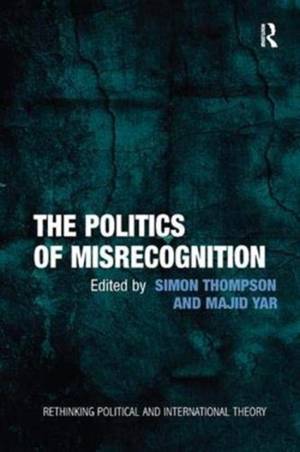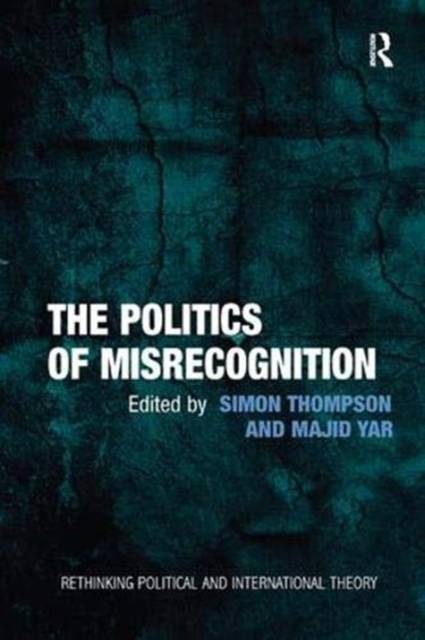
Door een staking bij bpost kan je online bestelling op dit moment iets langer onderweg zijn dan voorzien. Dringend iets nodig? Onze winkels ontvangen jou met open armen!
- Afhalen na 1 uur in een winkel met voorraad
- Gratis thuislevering in België vanaf € 30
- Ruim aanbod met 7 miljoen producten
Door een staking bij bpost kan je online bestelling op dit moment iets langer onderweg zijn dan voorzien. Dringend iets nodig? Onze winkels ontvangen jou met open armen!
- Afhalen na 1 uur in een winkel met voorraad
- Gratis thuislevering in België vanaf € 30
- Ruim aanbod met 7 miljoen producten
Zoeken
Omschrijving
The past several decades have seen the emergence of a vigorous ongoing debate about the 'politics of recognition'. The initial impetus was provided by the reflections of Charles Taylor and others about the rights to cultural recognition of historically marginalized groups in Western societies. Since then, the parameters of the debate have considerably broadened. However, while debates about the politics of recognition have yielded significant theoretical insights into recognition, its logical and necessary counterpart, misrecognition, has been relatively neglected. 'The Politics of Misrecognition' is the most meticulous reflection to date on the importance of misrecognition for the understandings of our political and personal experience. A team of leading experts from a range of disciplines, including philosophy, political theory, sociology, psychoanalysis, history, moral economy and criminology present different theoretical frameworks in which the politics of misrecognition may be understood. They apply these frameworks to a wide variety of contexts, including those of class identity, disability, slavery, criminal victimization and domestic abuse. In this way, the book provides an essential resource for anyone interested in the dynamics of misrecognition and their implications for the development of political and social theory.
Specificaties
Betrokkenen
- Auteur(s):
- Uitgeverij:
Inhoud
- Aantal bladzijden:
- 188
- Taal:
- Engels
- Reeks:
Eigenschappen
- Productcode (EAN):
- 9781138383944
- Verschijningsdatum:
- 10/06/2019
- Uitvoering:
- Paperback
- Formaat:
- Trade paperback (VS)
- Afmetingen:
- 156 mm x 234 mm
- Gewicht:
- 272 g

Alleen bij Standaard Boekhandel
+ 189 punten op je klantenkaart van Standaard Boekhandel
Beoordelingen
We publiceren alleen reviews die voldoen aan de voorwaarden voor reviews. Bekijk onze voorwaarden voor reviews.











